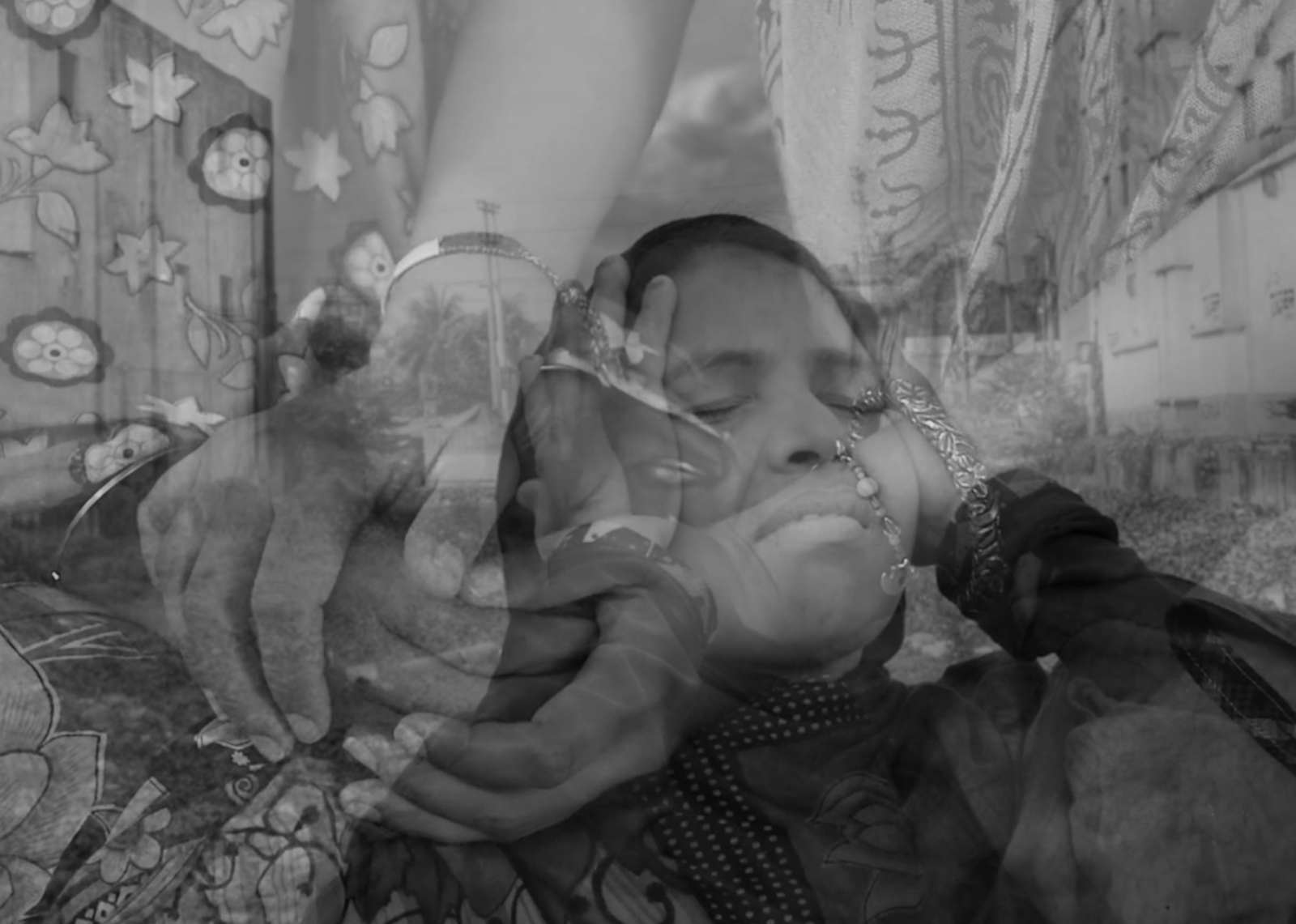
"Together, both presentations urged audience members to re-adjust the critical lenses that we use to frame situations in which translation takes place."
On Friday, January 19, the Translation Studies Hub put on a colloquium featuring two unique presentations. The first presentation, given by graduate student Sylvia Nasreen Chowdhury, a bilingual poet, visual artist, and translator in the UW English department, centered on Chowdhury’s own critical translations of two short form Bangladeshi documentaries. The films each centered on a the inhumane treatment of Bangladeshi women: survivors of the 2013 Rana Plaza collapse, and victims of rape and sexual assault in the country’s capital Dhaka. In her brief but insightful talk, Chowdhury explained how her own positionality as a diasporic Bangla speaker, her feminist transnational activist orientation, and her understanding of the stakes of her critical translation project have led her to create “thick” translations, ones that are heavily footnoted, and are attentive to colonial power dynamics on the level of sentence structure and grammar.
Chowdhury formatted her critical translations of the documentaries like a play script, juxtaposing them alongside the two previous translations of the spoken words in the films. In placing her highly nuanced, quite literal, and densely footnoted translations alongside the previous translations –which were often inattentive to the cultural context surrounding interviewees’ word choices, and which rearranged sentence structure to conform the interviewees’ utterances to English grammatical standards, Chowdhury was able to give a sense of the complexity of these narratives of trauma, something that was undermined in the more commercial translations provided in the documentaries. Indeed, resisting market demands for simplified, efficient translations is a key part of Chowdhury’s critical translation practice.
The second presentation, a joint effort by Aria Fani, assistant professor of Persian and Iranian Studies in the MELC department, and Reza Pedram, a former translator for the Human Rights Commission in Afghanistan, focused on the figure of the Afghan “fixer,” or the person who acts as a multifunctional intermediary between an occupying force (the US military) and Afghan civilians. The talk was a back-and-forth between Fani and Pedram, with Fani drawing on Zrinka Stahuljak work to think through the juridical, ethical, and theoretical issues behind the “fixer” figure, and Pedram giving firsthand examples of his experience working as a “fixer” during the US military occupation of Afghanistan. Throughout their joint talk, Fani and Pedram stressed that the juridical and theoretical language surrounding the “fixer” (or translator/interpreter) figure is incommensurate with the realities experienced by “fixers” themselves. They argued for increased visibility, and legal recognition of fixers, and for breaking with the language of fidelity and loss when speaking about translation—especially in contexts as complex as the ones in which Afghan fixers have had to work.
In the discussion segment of the colloquium, after the three presenters had given their talks, the room lit up with questions from the audience. Many people wanted to know more about Chowdhury’s critical translation practice–what might this type of advocacy-centric practice look like when applied to the context of literary translation, especially of poetry? How does one account for the imagined “average reader/viewer” in the US, who might be impatient when it comes to parsing through a densely layered critical translation? What types of action are best for pursuing social justice in an academic context? As researchers, how might we employ a feminist transnational activist agenda in our own work?
Chowdhury’s responses to these urgent questions were compelling and grounded. Speaking of how critical translation might be applied to the arts and poetry sector, Chowdhury urged translators to articulate how they see the stakes for their own work, to account for how they benefit (in a material sense) from the work they translate, and to be vulnerable in addressing painful topics. Staying on the surface level of trauma, Chowdhury contended, only leads to (gendered experiences of) pain being configured as market commodities. Chowdhury then challenged the notion of the “average reader/viewer,” and its inherent demand for “palatability” in translated work, urging those in the room to re-think this category as an inevitability. The “average reader/viewer,” Chowdhury said, is better thought of as a “hoax,” one that limits conversations about art -- especially art that addresses gendered experiences of trauma -- to a superficial level. In response to the questions about the actions that researchers might take in their academic work to pursue social justice, Chowdhury gave a characteristically nuanced reply: the “right” course of action that will move towards healing will likely vary from person to person, Chowdhury said. However, one commonality among those who aim to do this type of work, she said, is the willingness to simultaneously face and contend with pain, while also maintaining a hopeful outlook about the ability for social, political, or individual change to occur.
Other audience members were deeply emotionally impacted by Fani and Pedram’s presentation and shared that their ideas of what it might have been like for Afghan interpreters during the US military occupation had fundamentally shifted as a result of hearing the talk. Fani and Pedram’s talk also brought to the fore questions about the discrepancy between translation theory and the practice of translation.
Together, both presentations urged audience members to re-adjust the critical lenses that we use to frame situations in which translation takes place. Both encouraged increased attention to the ethical stakes of translation practices and expressed the necessity of discussion around those practices. The audience responded with openness, excitement, and a willingness to reflect. The Translation Studies Hub, along with the event’s co-sponsors, MELC and the Simpson Center for the Humanities, are grateful to all presenters, and to audience members, for such a rich conversation.
Image credit: Sylvia Nasreen Chowdhury